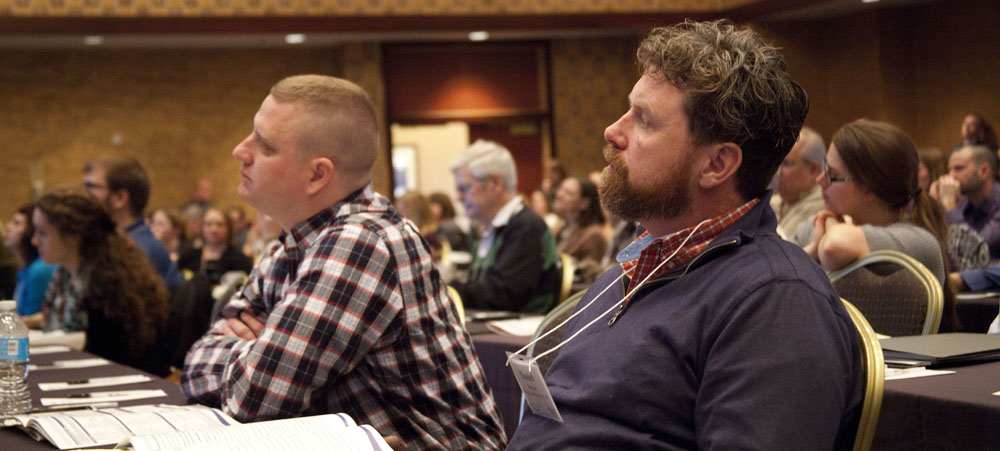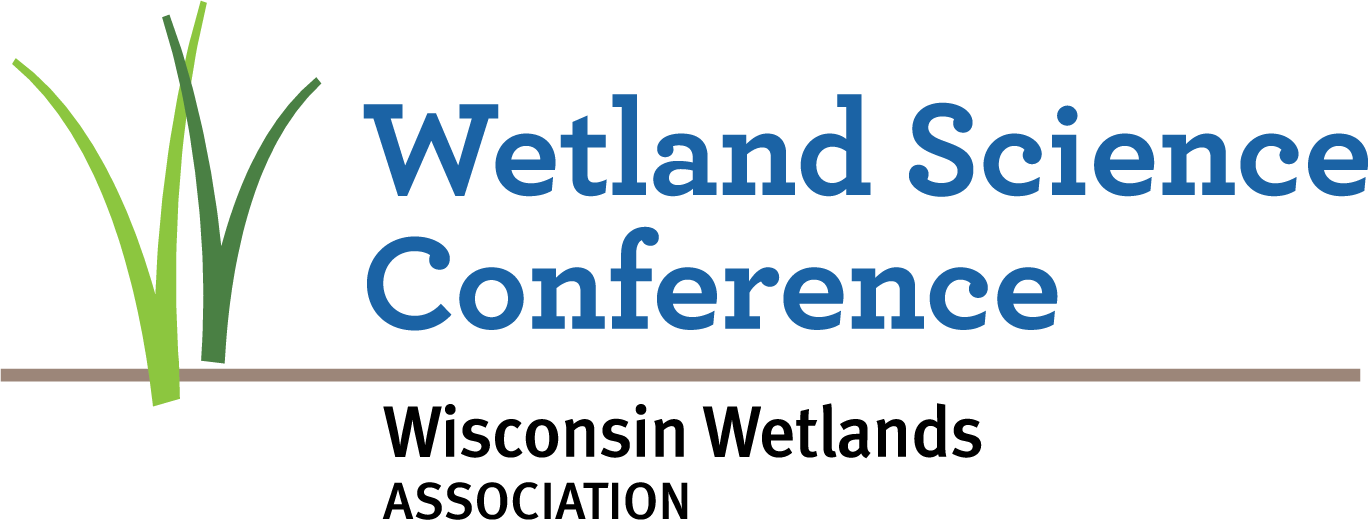
Conference symposia
Symposia are planned sessions on special topics that support the conference theme and that integrate across disciplines and across the landscape. Symposia could include oral presentations, panel discussions, and/or open discussion. All symposia should further information sharing and collaboration on current critical wetland issues.
No pre-signup is required for participation in symposia, however all participants must be registered to attend the conference. Please note that these sessions may be held concurrent with other conference content (working groups, roundtable conversations, field trips, and concurrent sessions).
Wednesday, February 25, 2026
Wetlands 101
Time: 11:00 am – 3:10 pm
Presenters in this symposium will provide entry-level discussions about their area of expertise. These talks will provide brief introductions to various aspects of wetland regulations, wetland ecology, wetland science, wetland restoration, and/or wetland monitoring to conference attendees who are newer to the field of wetland or are considering a future in the wetland sciences field.
Facilitators: Sally Jarosz (Wisconsin DNR)
Speakers:
Session 1 (before lunch):
Ben Meyer (MN Board of Water & Soil Resources) Three parameters for identifying wetlands
Alice Thompson (Thompson & Assoc. Wetland Services) Wetland soils 101 for wetland delineation and restoration
Kara Brooks (Wisconsin DNR) Wetland hydrology 101
Kate Remus (Stantec) Difficult scenarios in wetland delineation
Session 2 (after lunch):
Allison Willman (Wisconsin DNR) Wetland delineation vegetation sampling
Maureen Kalscheur (Wisconsin DNR) Stopping rare non-native invasive species in Wisconsin waters & wetlands
Ryan O’Connor (Wisconsin DNR) Intro to Wetland Plant Communities
Allissa Reynolds (Wisconsin DNR) Wisconsin wetland regulatory programs 101
Wetlands benefit from many levels of crane conservation
Time: 11:00 am to 12:20 pm
Cranes, an iconic wetland species, require healthy habitats worldwide throughout their annual cycle. Because wetlands serve cranes through the breeding, migratory, and winter seasons, conservation of all wetlands confers broad benefits throughout their range. Both of North America’s crane species occur in Wisconsin and rely on our healthy, functioning wetlands to remain conservation success stories.
This symposium will showcase research led by the International Crane Foundation illustrating how strong partnerships lead to resilient wetlands, to the advantage of cranes and people. We have collaborations with governments, communities, NGOs, universities, and the private sector at continental, flyway, and local levels. These case studies—from local to continental scales—offer practical lessons for wetland managers, restoration practitioners, and policy makers in Wisconsin. For example, restorations of floodplain wetlands in Vietnam have parallels to work underway in Wisconsin to recover Whooping Cranes here, especially in how water management decisions affect breeding success. Likewise, ensuring wetland connectivity throughout the Central Flyway has lessons that support wetland dependent species well beyond cranes here in Wisconsin. Please join us to learn more about these projects and how protection of crane habitats, critical migratory ecosystems, and wetland resources globally benefits us locally.
Facilitator: Anne Lacy (International Crane Foundation)
Speakers:
- Rich Beilfuss (International Crane Foundation) A 10-year vision for cranes, wetlands, and communities: insights from Wisconsin to the world
- Andy Caven (International Crane Foundation) Wetland restoration to ensure flyway connectivity for migratory cranes
- Hillary Thompson (International Crane Foundation) Threat mitigation to protect critical wetland habitat for Whooping Cranes
- Nicki Gordon (International Crane Foundation) Whooping crane nest site selection in Wisconsin wetlands
Lower Wisconsin Riverway ecology and its future in a changing climate
Time: 1:50 pm to 5:00 pm
The Lower Wisconsin Riverway is a Ramsar Wetland of International Importance, comprising 92 continuous miles of sandy, shallow river, floodplain wetlands, terraces, and river bluffs from the Prairie du Sac Dam to the confluence with the Mississippi River. An important historical, cultural, recreational, and aesthetic resource, it is well-known for its canoe camping, hunting opportunities, sport fishery, forest resources, Native American mounds, rural life, and other features. Ecologically, its significance has been recognized in many ways at statewide to global scales for its rare species as well as the number and high quality of native and surrogate, wetland, and upland plant-animal communities, their interconnections, and their natural transitions. Overlain on its natural hydrologic and nutrient dynamics are the effects of chemical and nutrient contamination from its 12,280 square mile watershed, altered flood regimes influenced by its many dams and watershed wetland losses, invasive species, and other challenges. Yet the riverway has adapted with the help of enlightened land and water management. In recent decades, climate change has introduced long-lasting challenges, especially with increased summer flooding—the causes of which are at a global scale and often considered unsolvable. This symposium reviews the state of the riverway and the reasons for its biodiversity while identifying management challenges and discussing how to think about it under the “new order.”
Facilitator: Mike Mossman (Wisconsin DNR, retired)
Speakers:
- Mark Cupp (Lower Wisconsin State Riverway Board) The Lower Wisconsin State Riverway: A riparian corridor with wetlands of international importance
- Jean Unmuth (Wisconsin DNR – retired) Feast and famine: Effects of droughts and floods in the Lower Wisconsin River basin
- Lisie Kitchell (Wisconsin DNR) Native mussels of the Lower Wisconsin Riverway
- John Lyons (UW Zoological Museum) The future of the fishes of the Lower Wisconsin River floodplain
- Gary Casper (Mequon Nature Preserve) Amphibians and reptiles in the Lower Wisconsin Riverway
- Brad Hutnik (Wisconsin DNR) The past, present, and future of the Lower Wisconsin State Riverway’s bottomland hardwood forests
- Mike Mossman (Wisconsin DNR – retired) Changes in breeding-bird communities of the Lower Wisconsin Riverway and the effects of climate
Thursday, February 26, 2026
Beavers and wetlands
Time: 10:40 am to 2:50 pm
Iconic ecosystem engineers, beavers contribute to the form and functions of numerous wetland types across varied landscapes. This session will explore the connections between beavers and the ecohydrology and biodiversity of wetland communities, as well as options for managing beavers in a landscape context. We will also look at the relationships between beavers and people and how different perspectives can influence beaver and wetland management. Finally, we will highlight current efforts to update Wisconsin’s beaver management plan and outline opportunities for scientific and public input.
Facilitators: Dreux Watermolen and Shawn Rossler (Wisconsin DNR)
Speakers:
- Jennifer Stenglein (Wisconsin DNR) Beaver monitoring in Wisconsin
- Matthew Mitro (Wisconsin DNR) The effects of beaver dams on Wisconsin trout streams and fisheries
- Mickki Garrity (University of Minnesota) Exploring The Eco-Cultural Relationships of Beaver and Wild Rice – Hydrological and Cultural Perspectives
- Courtney Dean (UW-Stout) Beavers at work: Boosting biodiversity through habitat engineering here, there, and everywhere
- Brad Strobel (Necedah National Wildlife Refuge) Constructing beaver dam analogs (case study)
- Lauren Bradshaw (Wisconsin DNR) Public Attitudes and Opinions Regarding Beaver and Beaver Management in Wisconsin
- Shawn Rossler (Wisconsin DNR) Following the process: Updating Wisconsin’s Beaver Management Plan
